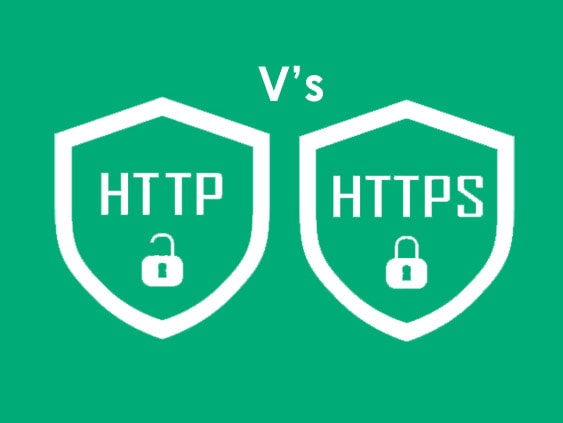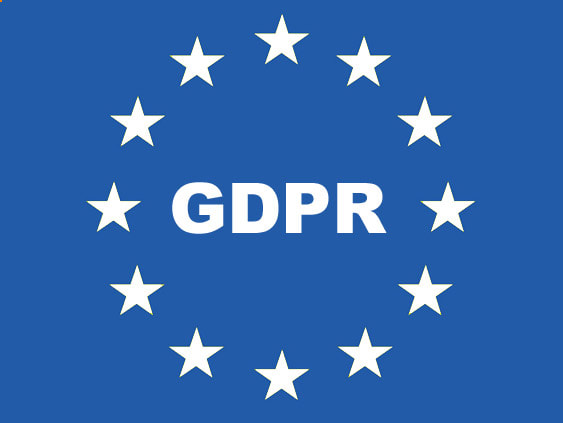|
In July 2018 Google is going to release a new Chrome interface which will also highlight sites that have not been migrated to https. But what exactly is the difference between http and https and how will Chromes new interface affect your website and business?
Whether you choose to change your site to https is obviously a decision for you and your business. Ultimately Google set the rules and want to help us be more secure in our online activities. In the long run it will pay dividend to follow these rules to get the best results for your business. And given that such large number of users will be accessing your site via Google Chrome. If your website is hosted by Creative Remedy on a CMS system, be sure to contact Sara for a chat about making your website secure.
0 Comments
Through discussions on business development at the local Jelly networking/ co-working event recently in Peterborough, the conversation turned to blogs and what would make great reading topics for the following months. I am a fairly private person and it was felt I could share some knowledge about myself… a sort of ‘Meet Your Consultant’. So here are a three and a few more things you may not know about me…
1. Vrruuuummm vrummm…. I ride a 600cc motorbike. About two years ago I passed my motorcycle test with a clean sheet. I do enjoy finding any reason to nip out for some milk! I have come a long way… thinking back to about 20 years ago when it took me three tries at passing my car driving test. With 28 minor faults on my first test, I remember clearly trying to do a hill start in neutral… I was that nervous. 2. Self Defence and Yoga I am a 2nd degree Black belt in Tae Kwon Do and training for my 3rd Dan. I have been training for 16 years and attend 1-2 sessions a week. I help out at interclub competitions and teach at my local club. I officiate at two competition a year, one local and one national and attend black belt sessions across the UK. I am first aid qualified. This is my club: Annabel Murcott Schools of Tae Kwon Do I attend Yoga about once a week, Hatha yoga is the style I practice, I have been doing this for about 4 years now. My instructor is Helen who adds a balanced mix of mind, body, theory and humour. Yoga gives me space to think, breath, time to focus on me and not take life too seriously. It has significantly changed my wellbeing over the years. The classes I attend are here: Equilibrium Yoga & Well-Being Centre 3. Family life Ben is my partner of 14 years, we have two girls of pre-school age who completed our family through adoption. We jointly share the care of our children which means we can both continue to work and pursue our interests. And a few more things...
On 21st Feb 2018 I attended a GDPR seminar with Decisive:it and Whiting & Partners. I am keen to share the knowledge I gained from this very informative seminar. I am pretty sure it will help your business in some way. What does GDPR stand for?
General Data Protection Regulation (Previously Data Protection Act 1998). What is the Purpose of the General Data Protection Regulation? The purpose of the General Data Protection Regulation is to make companies large and small responsible and accountable for all data stored within your business. That means every single piece - including that stored on paper and electronic data. What Businesses are Affected by GDPR? If you answer yes to the following questions, GDPR affects you and your business:
How Do I Get Compliant? There is a very short time to get compliant - between now and 25th May 2018 (even though the new policy was released two years ago!). The consensus is that if you already have a data policy, as long as you are making steps to upgrade it to the new regulation you won’t have ICO knocking at your door. Similarly, if you don’t have a data policy in place, start work on it now. You need to show that you have made a good start by 25th May 2018. Brief Guidelines For Creating Your first Data Policy? If you are a small business, you need to create your own data policy document that describes:
You need to show you understand how to keep your data safe and the risks your business administers by holding the data. You also need to show that you know how to report any data loss if you have a data breech. Support for GDPR: The Information Commissioner’s Office (ICO) has many resources to help get you GDPR ready. Want to hit the ground running in 2018? Have you been working in your business, catching up from the busy Christmas period? Have you got a long list of things to do and your own marketing is at the top but unsure where to start. Our quick list may be just the thing you need to help you get started. 1. Social Media
Pick a new social platform that you have never tried and make it your new year goal to become a digital guru for that network and add another string to your bow. 2. Video If a picture paints 1000 words what does a moving image do? Create one piece of moving digital media to promote your business. It could be a slideshow, animation, interview, or panoramic video. This can be delivered on your website or shared on social media. Don’t forget to measure the response. 3. Landing Pages We are all knowledgeable about your products or services, give away some FREE information via a landing page which asks for a potential customers details in exchange for this FREE helpful information. 4. Email Marketing Be brave and try something you have never done before. Add that video you created, start a referral program, run a competition or celebrate a milestone. Contacting potential customers even once a month may just be enough put you in the forefront of their mind. 5. Existing Customers We all know it’s easier to get more business from an existing customer rather than finding a new customer. Go through your contact list and find one reason to contact each customer, nothing sales based… ask them how your existing service is working for them, or maybe just to see how their Christmas and new year went and see where the conversation leads. If you are new to email marketing you may not know there are rules and regulations set out to help you and your customers. The most common question I get asked is who can I send email marketing to and what permission do I need? Permission
There are two kinds of permission. Implied permission and express permission. Implied permission is a little loose and covers anybody who you have an existing business relationship with. Express permission is everyone who has directly given you permission by opting in or subscribing either online or in-store. Address You must clearly include a valid postal address for your business in your email campaigns. This can be your street address, a postbox or a registered commercial mail-receiving company that your business uses. Frequency There are no legal rules of engagement, this comes down to common courtesy. Think how often you like to receive emails from a company and what type of business they run. For example… a supermarket marketing email can acts a weekly reminder to do your online shopping but another business thanking you for your visit then promoting their products on day 1, day 3 and day 5 may become a bit much. Opt-Out Let recipients opt-out easily. You should provide a link somewhere in the email for users to opt-out easily. Identify Clearly identify that your message is an advertisement. E.g. if there is an offer state what the offer is. Misleading Don’t use misleading header information. This specifically applies to: From name, subject line and reply-to address. Email marketing laws stipulate that you must not include incorrect or misleading information in these fields to try to trick people into opening your email campaigns. New law New legislation from the General Data Protection Regulation will come in to force from 25th May 2018. It will require your business to take extra measures to ensure customer data is kept safe and used properly. More info > More guidance
|
PrescriptionMedicated news to revive you and your business. Categories
All
Archives
December 2023
|
Get Connected
Visual Treatment and Cures |
Email Newsletter RemedyReceive a monthly prescription of Email Newsletter Remedy.
|
FREE Consultation
|
Contact
Our Team
|
© Copyright Creative Remedy 2023 | Terms & Conditions of Sale | Terms of Use | Privacy Policy | Cookie Policy
Creative Remedy provide a wide range of visual treatments and cures: Website Design & Website Development, Marketing & Digital Marketing, Logo Design & Branding, Email Marketing, SEO & Blogs & Content Creation, Social Media and Other Ailments in Peterborough and greater Peterborough, Cambridgeshire.






 RSS Feed
RSS Feed









